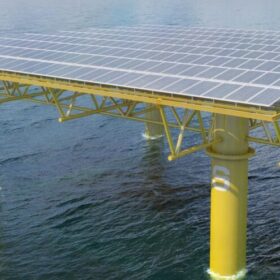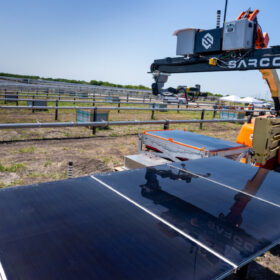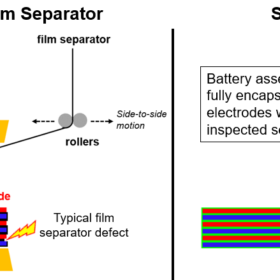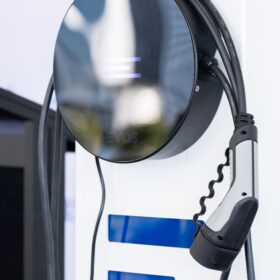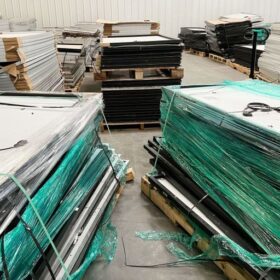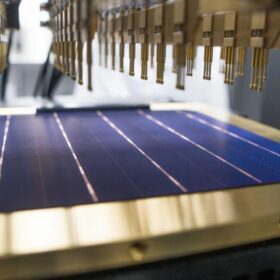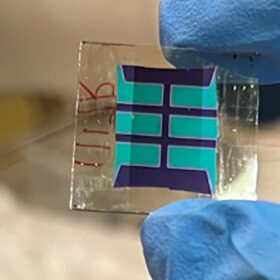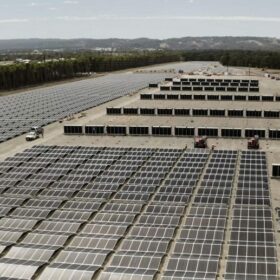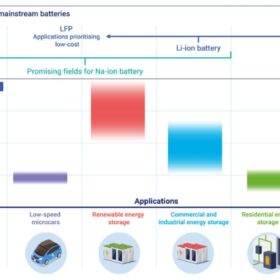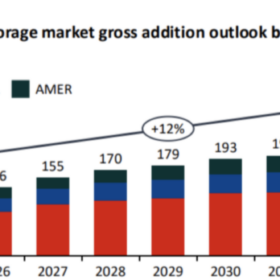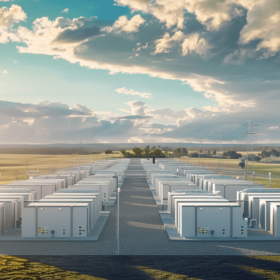Offshore floating PV demonstrator to go online in North Sea
The SeaVolt consortium says it will launch an offshore floating PV demonstrator off the Belgian port of Ostend. The main companies – Tractebel, DEME, Equans and Jan De Nul – say the anchored floating array will collect data for at least a year to scale up the tech.
New grid-forming inverter concept based on bee colony algorithm
Scientists in China have proposed to use an algorithm that simulates the behaviour of foraging bees to shape a new grid-forming inverter design. The approach is designed for both grid-connected and islanded inverters.
Autonomous robots for solar installation gain traction
Installation robots are moving from test centres to the field. American technology companies Sarcos Technology and Robotics Corporation and Terabase Energy recently announced key business developments.
Separator tech to prevent battery fires
United States-based battery startup Nuvola Technology says it has developed a direct deposition polymer separator technology that can eliminate the primary cause of lithium-ion battery fires.
Brisbane startup launches Australian-made home EV charger
Queensland electric vehicle charging technology startup Evos has unveiled its first home charger, a 7 kW wall-mounted device designed to add up to 35 kilometres of range to an electric vehicle for every hour it’s plugged in.
UNSW team scores 99% result with solar panel recycling process
A team of engineers at the University of New South Wales say they have developed a new, more effective method for recycling end-of-life solar panels that allows them to quickly and efficiently separate 99% of PV cell component materials.
ARENA pushes for step change in solar cost and efficiency
The Australian Renewable Energy Agency says solar technology is mature enough and sufficiently cost effective to meet Australia’s 2030 renewables goals but a step change in efficiency and cost is required to support the decarbonisation of hard-to-abate sectors such as industry and transport.
NREL develops perovskite solar cells with 93% bifaciality
A research team at the U.S. Department of Energy’s National Renewable Energy Laboratory has made highly bifacial perovskite cells with a front-side efficiency of 23%.
Modular solar tech delivers international award for Australia’s 5B
Australian modular PV array manufacturer 5B’s preassembled and relocatable modular solar technology has been awarded international honours with the United States-based World Future Awards panel naming it the best solar solution in its clean tech category.
Sodium-ion battery fleet to grow to 10 GWh by 2025
Global demand for sodium-ion batteries is expected to grow to just under 70 GWh in 2033, from 10 GWh in 2025, at a compound annual growth rate (CAGR) of 27%, according to UK-based market research company IDTechEx.
